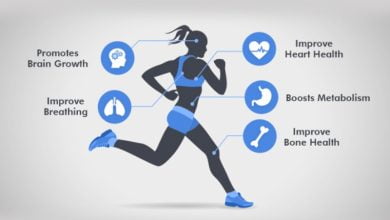The Unforgettable Legacy of the Baby Boomer Generation: A Comprehensive Exploration of their Impact on Society and Culture

Introduction:
The Baby Boomer generation, born between 1946 and 1964, represents one of the most influential cohorts in modern history. As the largest generation in Western history, Baby Boomers have played a significant role in shaping societal norms, cultural trends, economic dynamics, and healthcare systems. This comprehensive exploration delves into the demographic, social, economic, and healthcare implications of the Baby Boomer generation, highlighting its lasting impact on individuals, families, and societies worldwide.
Demographic Profile of the Baby Boomer Generation:
The Baby Boomer generation is characterized by its large size, diverse demographics, and cultural significance. Key demographic features of the Baby Boomer cohort include:
Size:
Baby Boomers represent a substantial portion of the population, comprising approximately 76 million individuals in the United States alone, according to U.S. Census Bureau data.
Diversity:
The Baby Boomer generation is diverse in terms of race, ethnicity, socioeconomic status, educational attainment, and cultural background, reflecting the changing demographics of post-World War II society.
Longevity:
Baby Boomers have experienced unprecedented increases in life expectancy, leading to longer lifespans and greater longevity compared to previous generations. Advances in healthcare, nutrition, and medical technology have contributed to extended life expectancies among Baby Boomers.
Retirement Trends:
As Baby Boomers enter retirement age, they are reshaping retirement trends, workforce participation rates, and pension systems. Many Baby Boomers are choosing to work longer, pursue encore careers, or engage in volunteer activities during their retirement years.
Social and Cultural Impact of the Baby Boomer Generation:
The Baby Boomer generation has exerted a profound influence on societal norms, cultural values, and generational dynamics, including:
Cultural Revolution:
Baby Boomers came of age during a period of social upheaval, cultural change, and political activism, including the civil rights movement, anti-war protests, and the counterculture movement of the 1960s and 1970s.
Economic Prosperity:
Baby Boomers benefited from postwar economic prosperity, rising affluence, and opportunities for upward mobility, contributing to the growth of consumerism, suburbanization, and lifestyle changes in postwar society.
Changing Family Structures:
Baby Boomers have influenced family structures, parenting styles, and generational relationships, including trends toward smaller family sizes, delayed marriage, and increased divorce rates compared to previous generations.
Health and Wellness Movement:
Baby Boomers have driven the health and wellness movement, advocating for preventive healthcare, fitness trends, and lifestyle interventions to promote healthy aging and longevity.
Economic Impact of the Baby Boomer Generation:
The Baby Boomer generation has had a significant impact on the economy, labor force dynamics, and retirement trends, including:
Workforce Participation:
Baby Boomers have had a profound impact on the labor force, contributing to changes in workforce demographics, retirement patterns, and labor market dynamics. As Baby Boomers retire, their exit from the workforce creates opportunities and challenges for employers, businesses, and the economy.
Healthcare Expenditures:
Baby Boomers represent a large cohort of healthcare consumers, driving demand for healthcare services, medical treatments, and long-term care options as they age. The aging Baby Boomer population places strains on healthcare systems, Medicare, and social safety nets, leading to increased healthcare expenditures and budgetary pressures.
Retirement Planning:
Baby Boomers’ retirement decisions and financial preparedness have implications for retirement planning, pension systems, and social security sustainability. As Baby Boomers transition into retirement, they face challenges related to retirement savings, income security, and healthcare costs in later life.
Economic Growth:
Baby Boomers have fueled economic growth, consumer spending, and market demand across various industries, including housing, healthcare, leisure, and entertainment. The aging Baby Boomer population presents opportunities for businesses to cater to the needs and preferences of older adults, such as age-friendly products, services, and housing options.
Healthcare Implications of the Baby Boomer Generation:
The aging Baby Boomer population has significant implications for healthcare systems, geriatric care, and public health, including:
Chronic Disease Management:
Baby Boomers are at increased risk for chronic diseases and age-related conditions, such as diabetes, heart disease, arthritis, and cognitive impairments. Managing chronic conditions among older adults requires comprehensive care coordination, preventive interventions, and specialized geriatric services.
Long-Term Care Needs:
As Baby Boomers age, the demand for long-term care services, including nursing homes, assisted living facilities, and home care services, is expected to rise. Addressing the long-term care needs of older adults requires investments in elder care infrastructure, caregiver support programs, and aging-in-place initiatives.
Healthcare Workforce:
The aging Baby Boomer population places demands on the healthcare workforce, including physicians, nurses, and allied health professionals, as they provide care for older adults with complex medical needs and age-related conditions. Training programs, workforce development initiatives, and geriatric care education are essential to address workforce shortages and meet the needs of an aging population.
Preventive Health Interventions:
Promoting preventive health interventions, lifestyle modifications, and wellness programs among Baby Boomers can reduce the burden of chronic diseases, improve quality of life, and delay the onset of age-related conditions. Preventive healthcare initiatives focus on health promotion, disease prevention, and early detection through screening, vaccinations, and
The Baby Boomer Generation: A Comprehensive Overview of a Transformative Era
Introduction:
The Baby Boomer generation, born between 1946 and 1964, represents a demographic cohort that has left an indelible mark on society, culture, economics, and politics. As the largest generation in history, Baby Boomers have played a pivotal role in shaping the modern world. This comprehensive overview seeks to explore the defining characteristics, historical context, societal impact, economic influence, and legacy of the Baby Boomer generation.
Defining Characteristics:
The Baby Boomer generation is characterized by several defining features that set it apart from previous and subsequent generations:
Size:
Baby Boomers constitute a significant portion of the population, numbering approximately 76 million in the United States alone. Their sheer numbers have had profound implications for various aspects of society.
Post-War Cohort:
Baby Boomers were born in the aftermath of World War II, during a period of economic recovery, optimism, and social change. Their upbringing was shaped by the postwar era’s values, opportunities, and challenges.
Cultural Shifts:
Baby Boomers came of age during a time of significant cultural upheaval, including the civil rights movement, women’s liberation movement, and counterculture revolution. They challenged traditional norms and values, advocating for social justice, equality, and individual freedoms.
Technological Advancements:
Baby Boomers witnessed rapid advancements in technology, from the advent of television to the rise of personal computers and the internet. These technological innovations have profoundly influenced their lifestyles, communication habits, and worldview.
Economic Prosperity:
Baby Boomers experienced unprecedented economic prosperity and upward mobility, benefiting from postwar economic expansion, job opportunities, and access to higher education. Their economic success contributed to the growth of consumerism, suburbanization, and material wealth.
Historical Context:
The Baby Boomer generation emerged against the backdrop of significant historical events and cultural shifts:
Postwar Rebuilding:
Following World War II, the global economy underwent a period of reconstruction and recovery. The postwar era witnessed economic growth, infrastructure development, and geopolitical realignments.
Suburbanization and Consumer Culture:
The 1950s and 1960s saw the rise of suburban living, mass consumption, and consumer culture. Baby Boomers grew up in a society characterized by rising affluence, technological innovation, and material abundance.
Social and Political Activism:
The 1960s witnessed a wave of social and political activism, with Baby Boomers at the forefront of movements for civil rights, women’s rights, environmental conservation, and peace.
Cold War Era:
Baby Boomers came of age during the Cold War, a period of geopolitical tension between the United States and the Soviet Union. The threat of nuclear war and ideological conflicts shaped their worldview and political consciousness.
Space Exploration and Technological Innovation:
The Baby Boomer generation witnessed significant achievements in space exploration, including the Apollo moon landing and the space race. Technological advancements, such as the development of computers and telecommunications, transformed society and the economy.
Societal Impact:
The Baby Boomer generation has had a profound impact on society in various domains:
Cultural Influence:
Baby Boomers have shaped popular culture, music, art, literature, and entertainment. They have produced iconic figures, such as The Beatles, Bob Dylan, and Martin Luther King Jr., who have left a lasting legacy on society.
Social Change:
Baby Boomers have been agents of social change, advocating for civil rights, gender equality, LGBTQ+ rights, and environmental sustainability. Their activism and advocacy efforts have led to legislative reforms and cultural shifts.
Workforce Dynamics:
Baby Boomers have redefined the labor market, work-life balance, and retirement trends. They have delayed retirement, pursued second careers, and embraced flexible work arrangements, reshaping traditional notions of work and retirement.
Family Structures:
Baby Boomers have influenced family structures, parenting styles, and intergenerational relationships. They have experienced changes in marriage patterns, divorce rates, and fertility rates, leading to diverse family arrangements and dynamics.
Healthcare and Aging:
As Baby Boomers age, they have become a significant demographic group in healthcare and aging-related services. They have driven demand for healthcare services, long-term care options, and aging-in-place solutions, shaping healthcare policies and delivery models.
Economic Influence:
The Baby Boomer generation has wielded considerable economic influence:
Consumer Spending:
Baby Boomers have been a driving force behind consumer spending, retail trends, and market demand. Their purchasing power has fueled industries such as housing, automotive, travel, and leisure.
Retirement Savings:
Baby Boomers’ retirement savings and investment decisions have significant implications for financial markets, retirement planning, and pension systems. Their retirement savings behavior has influenced asset allocation strategies, investment products, and retirement income solutions.
Wealth Transfer:
Baby Boomers are expected to transfer trillions of dollars in wealth to younger generations in the coming decades. This intergenerational wealth transfer will shape inheritance patterns, wealth distribution, and economic inequality.
Housing Market:
Baby Boomers’ housing preferences, downsizing decisions, and retirement relocations impact the housing market, real estate values, and urban development. Their housing choices have implications for housing affordability, supply, and demand.
Entrepreneurship:
Baby Boomers have been active participants in entrepreneurship, small business ownership, and startup ventures. They have launched businesses, created jobs, and contributed to economic innovation and growth.
Healthcare Implications:
The aging Baby Boomer population has significant implications for healthcare:
Healthcare Demand:
Baby Boomers represent a large cohort of healthcare consumers, driving demand for medical services, preventive care, and chronic disease management. Their healthcare needs and preferences influence healthcare utilization patterns, healthcare spending, and healthcare policy.
Long-Term Care:
As Baby Boomers age, the demand for long-term care services, including nursing homes, assisted living facilities, and home care, is expected to increase. Addressing the long-term care needs of older adults requires investments in elder care infrastructure, caregiver support programs, and aging-in-place initiatives.
Healthcare Workforce:
The aging Baby Boomer population places demands on the healthcare workforce, including physicians, nurses, and allied health professionals. Meeting the healthcare needs of older adults requires workforce training, geriatric specialization, and interdisciplinary care models.
Chronic Disease Management:
Baby Boomers are at increased risk for chronic diseases, such as diabetes, heart disease, arthritis, and Alzheimer’s disease. Managing chronic conditions among older adults requires preventive interventions, lifestyle modifications, and comprehensive care coordination.
Policy Implications:
The aging Baby Boomer population has implications for healthcare policy, Medicare, and social safety nets. Policymakers must address issues such as healthcare financing, access to care, and long-term care financing to meet the needs of an aging population.
Conclusion:
The Baby Boomer generation has left an indelible mark on society, culture, economics, and healthcare. As the largest and most influential generation in history, Baby Boomers have shaped the modern world in profound ways. Understanding the characteristics, historical context, societal impact, economic influence, and healthcare implications of the Baby Boomer generation is essential for appreciating its legacy and addressing the challenges and opportunities posed by an aging population.
Introduction to the Baby Boomer generation
The Baby Boomer generation, born between 1946 and 1964, is one of the most influential and significant generations in modern history. With their sheer numbers and unique experiences, Baby Boomers have left an indelible mark on society and culture. As a member of this generation, I have witnessed firsthand the tremendous impact that Baby Boomers have had on various aspects of our lives. In this comprehensive exploration, I will delve into the historical context, societal impact, cultural contributions, economic influence, and political power of the Baby Boomer generation. Join me as we uncover the unforgettable legacy of this remarkable generation.
Historical context of the Baby Boomer generation
To understand the significance of the Baby Boomer generation, we must first examine the historical context in which they emerged. The end of World War II brought about a period of optimism and prosperity in the United States and other Western countries. Returning soldiers settled down, started families, and contributed to a significant increase in birth rates. This population boom, known as the Baby Boom, gave rise to the generation we now refer to as Baby Boomers. They grew up during a time of economic growth, technological advancements, and social change, which shaped their worldview and values.
The impact of the Baby Boomers on society
The Baby Boomers have had a profound impact on society, influencing various aspects of our lives. One of the most notable contributions of this generation is their activism and involvement in social movements. From the Civil Rights Movement to the Women’s Liberation Movement, Baby Boomers were at the forefront of fighting for equality and justice. Their collective voice and determination brought about significant societal changes that continue to shape our world today.In addition to their activism, Baby Boomers also played a pivotal role in shaping popular culture. They witnessed the birth of rock and roll, the rise of counterculture, and the advent of television. The music, fashion, and art of the Baby Boomer era reflect their rebellious spirit and desire for self-expression. From Woodstock to the Beatles, Baby Boomers revolutionized the entertainment industry and left an indelible mark on popular culture.
Cultural contributions of the Baby Boomer generation
The cultural contributions of the Baby Boomer generation are vast and varied. They redefined societal norms and challenged traditional values. Baby Boomers embraced individualism and personal freedom, paving the way for a more inclusive and tolerant society. They championed environmental causes, leading to the establishment of Earth Day and the widespread adoption of eco-friendly practices. Baby Boomers also popularized recreational activities such as hiking, camping, and yoga, promoting a healthier and more balanced lifestyle.Moreover, Baby Boomers transformed the concept of family and relationships. They challenged the traditional gender roles and advocated for gender equality. Divorce rates soared during their time, as Baby Boomers sought personal fulfillment and happiness. This generation’s emphasis on self-discovery and personal growth influenced subsequent generations, shaping the way we approach relationships and family dynamics.
Economic impact of the Baby Boomer generation
The economic impact of the Baby Boomer generation cannot be overstated. As they entered the workforce, Baby Boomers experienced unprecedented economic growth and prosperity. They benefited from rising wages, job security, and access to higher education. This economic stability allowed Baby Boomers to accumulate wealth and invest in various industries, fueling economic expansion.However, as Baby Boomers approach retirement age, their economic impact is shifting. The aging population poses challenges to healthcare systems, social security, and pension funds. The demand for healthcare services and retirement facilities is increasing, creating opportunities for growth in these sectors. Additionally, the transfer of wealth from Baby Boomers to younger generations will have a significant impact on the economy and wealth distribution.
Political influence of the Baby Boomer generation
Throughout their lives, Baby Boomers have exerted significant political influence. They witnessed and participated in some of the most transformative political movements in history. From the Vietnam War protests to the Civil Rights Act, Baby Boomers shaped public opinion and influenced policy decisions.As Baby Boomers age, their influence has extended into politics and policymaking. They form a significant voting bloc and are actively engaged in the political process. Baby Boomers’ values and priorities continue to shape the political landscape, influencing issues such as healthcare, social security, and environmental policies.
Baby Boomers and technology
While Baby Boomers may not be known as digital natives, they have adapted to technological advancements and embraced the digital age. As the generation that witnessed the birth of personal computers and the internet, Baby Boomers have become proficient in using technology to connect with others, access information, and enhance their daily lives.Social media platforms have provided Baby Boomers with a means to stay connected with family and friends, share their experiences, and voice their opinions. They have also embraced online shopping, e-commerce, and digital entertainment. Baby Boomers’ adoption and use of technology have bridged the generational gap, creating new opportunities for communication and engagement.
Challenges faced by the Baby Boomer generation
Despite their many achievements, Baby Boomers have faced their fair share of challenges. The economic downturns, such as the recession of 2008, have had a significant impact on their retirement plans and financial security. Many Baby Boomers have had to delay retirement or reenter the workforce to make ends meet.Healthcare challenges also loom large for the Baby Boomer generation. As they age, the demand for healthcare services and long-term care facilities is increasing. Baby Boomers are navigating the complexities of Medicare, insurance coverage, and managing chronic health conditions. The healthcare system is under pressure to provide quality care and support for this aging population.
How the Baby Boomer generation is reshaping retirement
Retirement is undergoing a transformation as the Baby Boomer generation reaches this milestone. Baby Boomers are redefining what it means to retire, seeking opportunities for continued engagement, learning, and personal growth. Many are opting for phased retirement, working part-time or starting second careers. Others are embracing entrepreneurship and launching their own businesses.Moreover, Baby Boomers are reshaping retirement communities and senior living options. They are demanding amenities, social activities, and healthcare services that cater to their active and independent lifestyles. The retirement industry is adapting to meet the changing needs and expectations of the Baby Boomer generation.
The legacy of the Baby Boomer generation
The Baby Boomer generation’s legacy is one of resilience, activism, and cultural transformation. They have influenced society, politics, and the economy in profound ways. Their commitment to social justice, individualism, and personal freedom has shaped our world and continues to inspire future generations.As Baby Boomers pass the torch to younger generations, their legacy lives on. Their influence can be seen in the values and ideals that shape our society. The impact of the Baby Boomer generation will be remembered for generations to come.
Conclusion
The Baby Boomer generation has left an unforgettable legacy that has shaped society and culture in indelible ways. From their activism and cultural contributions to their economic and political influence, Baby Boomers have transformed the world we live in. As we reflect on their impact, it is essential to recognize the challenges they face and the ways in which they are reshaping retirement. The legacy of the Baby Boomer generation serves as a reminder of the power of collective action and the ability of individuals to make a lasting difference. Let us celebrate and honor the unforgettable legacy of the Baby Boomer generation.




